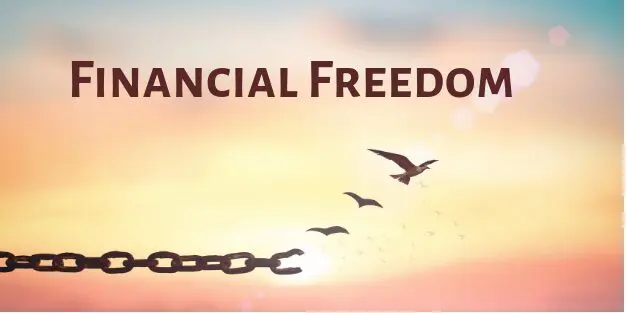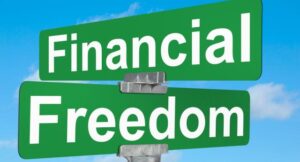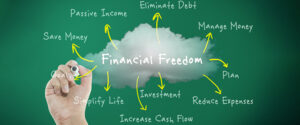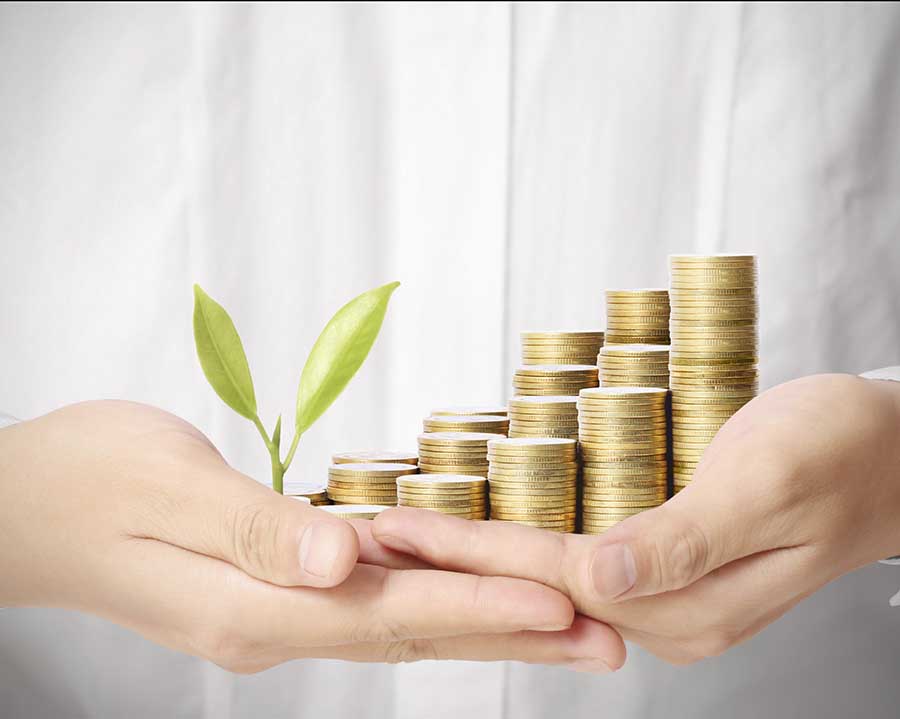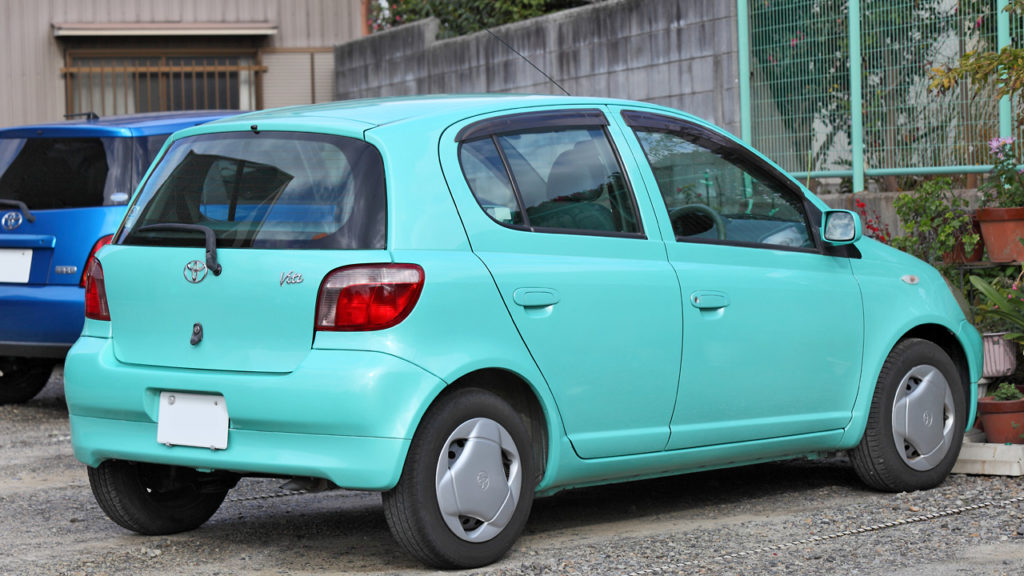From its founding in 1995, the Index of Economic Freedom has released strong evidence that proves that financial freedom makes an economy grow and prosper.
The index measures 12 quantitative and qualitative categories, which can be classified into four main categories of freedoms:
- Rule of Law(property rights, government integrity, judicial effectiveness)
- Government Size(government spending, tax burden, fiscal health)
- Regulatory Efficiency(business freedom, labour freedom, monetary freedom)
- Open Markets(trade freedom, investment freedom, financial freedom)
According to the Index, economic freedom is the most critical variable for continued economic development. At its core, financial freedom is about individual autonomy, concerned chiefly with the freedom of choice individuals enjoy in acquiring and using economic goods and resources.
Not surprisingly, Pakistan underperforms in most of these categories, which means that striving for financial freedom is even more challenging for those working and living in Pakistan.
This article going to discuss how we can improve our chances of achieving financial freedom despite living in Pakistan, fighting against cultural and habitual norms which hinder our chances of living a financially relaxed life.
Defining Financial Freedom
Financial Freedom is defined in economic terms as having an accessible and efficient functioning formal financial structure. This structure ensures the availability of comprehensive and easy-to-use savings, credit, payment, and investment services for individuals and businesses. This means that financially free people can spend, borrow, and invest according to their desires without any hindrance. Access to financing and credit on easy terms are also part of financial freedom
People in the Asia–Pacific region, overall, are hampered as the freedom to invest, and financial freedom rates are far below world standards. Pakistan also lags on all the financial inclusion indicators and economic freedom linked with banking and capital markets. The Financial Freedom score of Pakistan is 40.0 against the world’s average of 48.7
As per the Index of Economic Freedom, there is a clear link between higher levels of financial freedom and growing per capita income. Over the past few decades, the countries that adopted some form of free-market capitalism through the private sector achieved better scores for financial freedom.
This can be done by offering businesses an infrastructure of efficient regulations and opening up the free flow of goods, services, and capital. This allows people and, eventually, countries to break away from the vicious cycle of poverty and dependence measured by the Index as financial freedom.
What does Financial Freedom Mean for Individuals?
Social media and the increased availability of information have skyrocketed the pressure to gain more money. Most of us are looking for peace of mind so we can be financially free. To achieve your goals in a well-planned way, you must be able to deal with your finances.
The need to plan for an independent income starts from your first salary. The first real full-time job should be an indicator to start investment planning. Even those of us eager to learn about money management and get ahead find the task daunting.
There is a shortage of available information and a lack of suitable investment options. The main reason? We are conditioned culturally to be passive consumers and not think critically about our financial future. There is a lack of suitable options for those who want to plan out our financial futures.
The value of our money generally decreases with time due to inflation. Rs. 1000 today would only be worth Rs. 850 next year, according to the current inflation rates. If this rate continues, you will lose roughly 15% of your money annually if you keep it as cash. If the rates your bank offers are less than the inflation rate, you will be losing money even if you are saving it.
Here are some things to know if you want to attain financial freedom while living and working in Pakistan. Financial freedom is possible and achievable with minor changes in your habits.
How to Achieve Financial Freedom
At the beginning of your career, you may not be able to see yourself in the future because you are more focused on paying bills and saving money for big-ticket items. However, the dreams that you have now will only come true with saving and investing heavily now.
Your ability to reach your goals and be financially secure is dependent on maximizing wealth on investments. This can provide you with the means for future financial freedom. For example, start getting money automatically withdrawn from your paycheck into an equity fund or voluntary pension scheme. You’ll have a solid nest egg when you leave the workforce.
1. Start Investing and Saving Early
Savings are an essential secret for economic and financial health. Pakistan has one of the lowest savings rates in the world. It has a gross savings rate of 12.3% in 2019 against the world average of 24.6% and much below peer countries in the region.
According to economic development theory, saving is key for investment to take place, and investment is necessary for achieving financial growth. This means that, for a person to achieve financial growth and development, the level of savings must be high and sustainable.
Start investing in mutual funds, ETFs, and the stock markets. There are options available for those that make an effort and give time for research. Once you have more significant amounts saved, start investing in commodities. For those that start off early, the extended horizon of investing (the amount of time between now and when you access your money) makes it possible to invest in higher-yield but riskier instruments. However, even at this early stage in your investment journey, it’s important to create a well-blended portfolio through strategic investments with lower-risk options.
Even if you spend hours analyzing financial data, the changes you could have on your investment rate would be minimal. If you have the mindset, start a small side business like a food cart, food catering, reselling, or even tutoring lessons. The point is to maximize your potential and generate income to be independent.
2. Budgeting your Income
Budgeting is the key to every successful savings plan. Regardless of how much you earn, if you have a high income or are living payday to payday, you must keep track of your income and manage where the money goes.
Budgeting gives you an overview of your finances and gives you a better perspective to manage your earnings. Managing or building a budget isn’t just about controlling your monthly cash flows but about seeing how much money you make and where you spend it and then evaluating if you are doing it right or if you need to reassess your expenditures.
A well-made budget will help you keep track of your spending and identify where your cash is going. Documenting all spending heads can help you see where you unconsciously spend more than you should. This helps you identify where to free up additional cash to repay your debt faster or create an emergency fund.
3. Focus on saving more than you spend
I always say this, but please buy and spend carefully. If you skip your weekly fine dining ritual, buy less branded goods, and make a habit of buying from sales, you’ll enjoy the growth in your account more than that of your wardrobe.
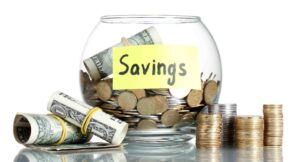
4. Borrow Money to Earn Money
To save more money, you may need to find ways to spend less or make more. One easy way is to borrow money to buy assets that will earn money for you. It is sensible to borrow money to buy a house, as long as it makes financial sense and doesn’t put you in debt. This means assessing if the rental saving or earnings will be enough to justify the loan instalment you must pay.
However, if you get an expensive financial loan to make your purchase, achieving your goal may be too expensive. You could save money instead of taking out the loans. If you want to buy something (e.g., a car) but don’t know if you’ll be able to afford it, consider researching and comparing different lending resources. If you do, you may find that you are looking to buy something that falls out of your price range.
5. Invest in Yourself
Investing in yourself and improving your skills will ensure a guaranteed return in terms of both economic and personal fulfillment. Rather than investing in something material, become a better version of yourself, and you will see the long-term impacts. Many of us get caught up in earning and working and leave chances for career and earnings growth by not working on ourselves more.
Investing in further professional qualifications and skills is an investment that is closely linked to your decision-making and has excellent results over the long run. So go for that degree or certification and make it worthwhile.
Conclusion
As a nation, we save less than our counterparts across the border or in other countries in the region. With the inflation levels at an all-time high, it is time that we all focus on saving more and reducing our expenses.
Most adult Pakistanis living in urban cities work daily and earn appropriate money. Most of us usually have empty wallets and emptier bank accounts at the month’s end. This is particularly true now with the inflation making our money seem to have wings.
This state of being broke does not have to be the norm, and it can be avoided or at least reduced to some extent by having some discipline in your spending patterns. Spend wisely and with a long-term plan in mind so that you can do some effective financial planning.
Financial freedom is not something that happens overnight. If you want financial freedom, you need to plan and put that plan into action to get to the point where of the hard work that you put in will be worth it.
Changing old habits is hard and scary, but if you don’t act, what does your financial future really look like? All you need to do is take one step, do one thing that will get you closer to your financial freedom, the key lies in acting.

Sadia Zaheer holds a Masters in Business Administration from IBA, Karachi. After working in several financial institutions in Client Management, Corporate Lending, Islamic Banking and Product Management she jumped careers to pursue a career in writing.
She is a Finance, Business and HR Development writer with four years of experience. She reads a lot and takes care of her multiple cats to remain calm.

